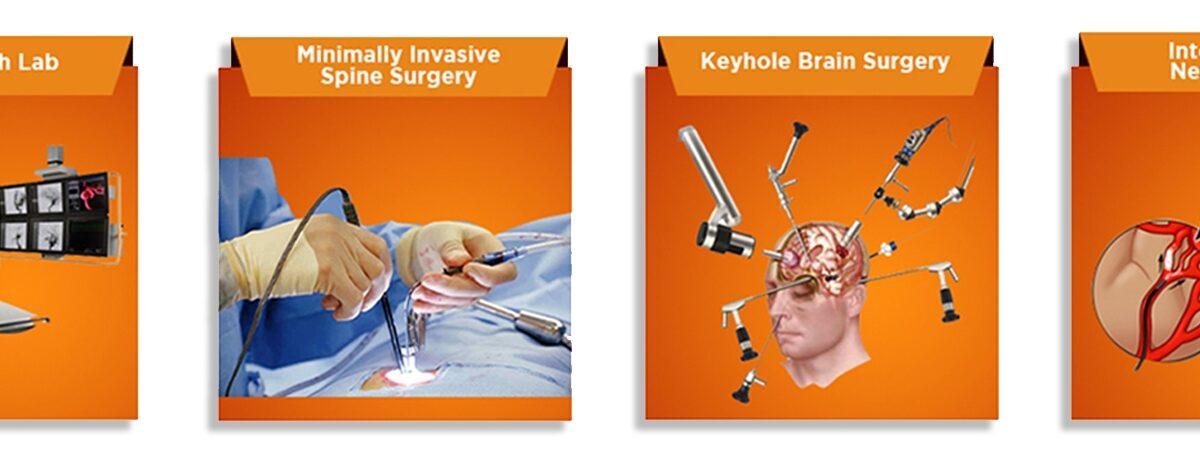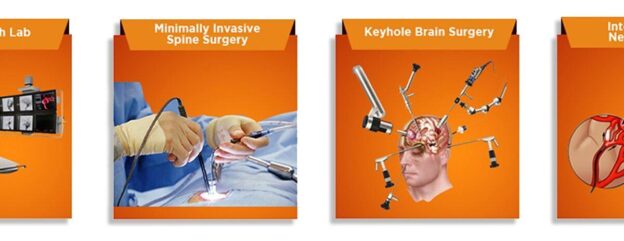Neurosurgical Diseases: Understanding Common Conditions & Dr. Rao’s Expertise
Explore the spectrum of common neurosurgical diseases and conditions, from meningiomas to neurotrauma. Discover the expertise of Dr. Rao, the best neurosurgeon in India, and the advanced care provided at Dr. Rao’s hospital in treating these complex conditions.
Common neurosurgical diseases and the best treatment at Dr. Raos hospital; Dr. Rao, the best neurosurgeon in Guntur and India, provides the best services for neurosurgical patients. You will come to know the common neurosurgical conditions in this blog.
Neurosurgery is a specialized field of medicine that focuses on the diagnosis and surgical treatment of conditions affecting the nervous system. Here are some common neurosurgical diseases:
- Brain Tumors: Abnormal growths in the brain that can be benign or malignant. Neurosurgery is often performed to remove brain tumors and relieve pressure on the surrounding tissues.
- Spinal Disorders: Conditions such as herniated discs, spinal stenosis, and spinal deformities can cause pain, weakness, and numbness. Neurosurgery may be necessary to decompress nerves or stabilize the spine.
- Cerebrovascular Diseases include aneurysms, arteriovenous malformations (AVMs), and strokes caused by blood vessel abnormalities. Neurosurgical interventions aim to repair or remove these abnormalities to prevent further damage.
- Traumatic Brain and Spinal Cord Injuries: Severe head or spinal cord injuries may require neurosurgical interventions to remove blood clots, repair fractures, or decompress the affected area to reduce swelling and minimize long-term damage.
- Epilepsy: When medications fail to control seizures, neurosurgery may be considered. Procedures like resective surgery or the placement of vagus nerve stimulators can help reduce seizure activity.
- Movement Disorders: Conditions like Parkinson’s disease, essential tremor, and dystonia can be treated with neurosurgical procedures, such as deep brain stimulation (DBS), to alleviate symptoms and improve quality of life.
- Chiari Malformation: A condition where brain tissue extends into the spinal canal. Neurosurgery may be necessary to relieve pressure on the brain and spinal cord.
- Hydrocephalus: Characterized by an abnormal accumulation of cerebrospinal fluid in the brain, hydrocephalus often requires surgical placement of a shunt system to divert the excess fluid and relieve pressure.
- Peripheral Nerve Disorders: Conditions like carpal tunnel syndrome, peripheral nerve injuries, and nerve entrapments may require neurosurgical interventions to decompress or repair the affected nerves.
- Pediatric Neurosurgical Diseases: Neurosurgery also addresses conditions specific to children, such as congenital anomalies, brain tumors, hydrocephalus, and spina bifida.
- Meningiomas: These are tumors that develop in the meninges, the protective layers surrounding the brain and spinal cord. Surgical removal is often required to treat meningiomas, especially if they cause symptoms or grow in size.
- Pituitary Disorders: Conditions affecting the pituitary gland, such as pituitary adenomas or tumors, can disrupt hormone production. Neurosurgery may be necessary to remove or treat these abnormalities and restore normal pituitary function.
- Trigeminal Neuralgia: This is a chronic pain disorder affecting the trigeminal nerve, which causes severe facial pain. Neurosurgical procedures like microvascular decompression or radiofrequency ablation can provide relief by targeting the nerve responsible for the pain.
- Arteriovenous Malformations (AVMs): These are abnormal tangles of blood vessels in the brain or spinal cord. Neurosurgery may be required to remove or repair AVMs to prevent bleeding or other complications.
- Skull Base Tumors: Tumors located at the base of the skull can be challenging to treat due to their proximity to critical structures. Neurosurgery, often performed in collaboration with other specialists, is used to remove or manage these tumors.
- Neurovascular Diseases: Conditions like cerebral aneurysms, arteriovenous fistulas, and vascular malformations can cause significant neurological complications. Neurosurgical interventions, such as endovascular coiling or embolization, aim to treat these conditions and restore normal blood flow.
- Neurofibromatosis: A genetic disorder that causes tumors to form on nerves throughout the body, including the brain and spinal cord. Neurosurgery may be necessary to remove or manage these tumors to relieve symptoms and prevent complications.
- Craniofacial Anomalies: These congenital abnormalities affect the structure and development of the skull and face. Neurosurgical procedures, often performed in conjunction with plastic surgeons, are used to correct these anomalies and improve both form and function.
- Neurodegenerative Disorders: While neurosurgery may not be curative for diseases like Parkinson’s disease or Alzheimer’s disease, deep brain stimulation (DBS) procedures can help manage symptoms and improve quality of life for some patients.
- Neurotrauma: Neurosurgery plays a crucial role in the treatment of traumatic brain and spinal cord injuries, which can include intracranial hemorrhages, skull fractures, and spinal cord compression.
It’s important to note that treatment options vary depending on the specific condition and individual patient circumstances. A neurosurgeon will evaluate each case and recommend the most appropriate action.
Tags: neurosurgical diseases, common neurosurgical conditions, Dr. Rao, best neurosurgeon in India, Dr. Rao’s hospital, neurosurgery, meningiomas, pituitary disorders, trigeminal neuralgia, AVMs, skull base tumors, neurovascular diseases, neurofibromatosis, craniofacial anomalies, neurodegenerative disorders, neurotrauma


